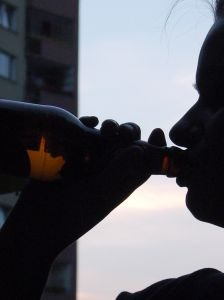Typically, a worker who is injured on the job in Boston is precluded from filing a civil personal injury lawsuit. The reason is identified in Chapter 152, of the Massachusetts General Laws (M.G.L.), which stipulates workers’ compensation is a single-recovery system. If a worker is an employee (as opposed to an independent contractor), and the injury occurred in the course and scope of employment, he or she must file a workers’ compensation claim to obtain recovery. 
However, there are limited exceptions to this preclusion. One is when injuries result on-the-job due to negligence of a third party. This person is not the employer or a co-worker or a manager. Negligence of contractors, vendors and completely separate third parties may be grounds for third-party litigation.
Because so many people drive in the course and scope of employment and because drunk driving is such a prevalent problem, we see many cases wherein workers are harmed by drunk drivers. These individuals may claim workers’ compensation coverage, and also pursue third-party litigation against the drunk driver and other responsible third parties.
However, there are some important distinctions between workers’ compensation claims and those predicated on third party negligence. The primary difference is that while workers’ compensation does not require proof of negligence, third-party claims are like any other civil injury lawsuit and they do require proof of negligence by a preponderance of the evidence.
These drunk driving injury cases involving employees often affect roadside construction crews and employees who travel as a routine part of their work.
In these matters, injured crash victims should speak with a Boston drunk driving accident lawyer who also handles workers’ compensation matters. This will help ensure you receive maximum compensation.
We understand the processes, statutory deadlines and the way in which these separate cases will affect each other. We know you must first file a workers’ compensation claim and then pursue your claim against the at-fault driver’s insurer. In drunk driving accident cases, insurers often accept liability because it is hard to defend drunk driving conduct. The issue then becomes how much you are owed. We argue for maximum coverage for medical bills, lost wages, pain and suffering and other types of damages (many of which are not fully covered under workers’ compensation).
One exception to auto insurers quickly accepting liability where an insured was driving drunk is when the impaired driver was reportedly not at-fault. For example, if a person gets behind the wheel drunk and stopped at a red light and rear-ended by a sober driver, there is a very high probability drunk driver was not at-fault in this accident – even if they broke the law by driving impaired. This doesn’t mean he gets a free pass because the investigating offer can still charge drunk driving with operating under the influence of intoxicating liquor (OUI), but other driver would likely be cited for the accident. This is not a common case scenario, but it’s not outside the realm of possibility.
Requirement to Reimburse Workers’ Compensation Insurance Company in Boston Drunk Driving Accident
One additional requirement in workers’ compensation cases in Boston where claimant also recovers a settlement from at-fault driver’s insurance company or wins a verdict at trial is plaintiff must reimburse employer’s workers’ compensation insurance company for any money paid in lost wages or medical bills from the proceeds of the Boston drunk driving settlement or lawsuit. While this may seem unfair, the system is set up to prevent a plaintiff from receiving what is known as a double recovery.
Understanding your legal rights and obligations is a responsibility our injury lawyers take seriously.
Recent Example of a Boston Area Drunk Driving Accident
According to a recent news article from CBS Boston Local, a tow truck driver was killed by an alleged drunk driver in the Greater Boston area. Authorities have said decedent was outside of his vehicle working a roadside crash along I-95 when he was hit by the alleged drunk driver. Tow truck driver died as a result of his injuries.
When first responders arrived at the scene of what turned out to a fatal alleged Boston area drunk driving accident, defendant was transported to a level one trauma center as she had sustained serious injuries in the crash as well. She was also placed under arrested and arraigned at her hospital bed, which is a common practice in a Boston drunk driving accident cases. When her blood was taken and toxicology was run by the hospital, it was determined her blood alcohol content (B.A.C) was 0.03 grams of alcohol per hundred milliliters of blood. This is below the legal limit so police are trying to determine if defendant was under the influence any drugs at the time of this accident. While a 0.08 B.A.C is a per se drunk driving offense, someone can still be found to be driving while intoxicated at any lower level B.A.C. if it can be established she was actually intoxicated.
It should be noted even though defendant has been charged with a serious offense, these are only allegations and she is presumed innocent unless and until she is found guilty in a court of law beyond a reasonable doubt which is the applicable standard of proof in a criminal case in Massachusetts.
If you or someone you love has been injured a Boston drunk driving accident, call for a free and confidential appointment at (617) 777-7777.
Additional Resources:
More Blog Entries:
Massachusetts Drunk Driving Accident Victims Must Fight Hard for Compensation, Feb. 25, 2018, Boston Drunk Driving Accident Attorney Blog
 Boston Drunk Driving Accident Lawyer Blog
Boston Drunk Driving Accident Lawyer Blog

